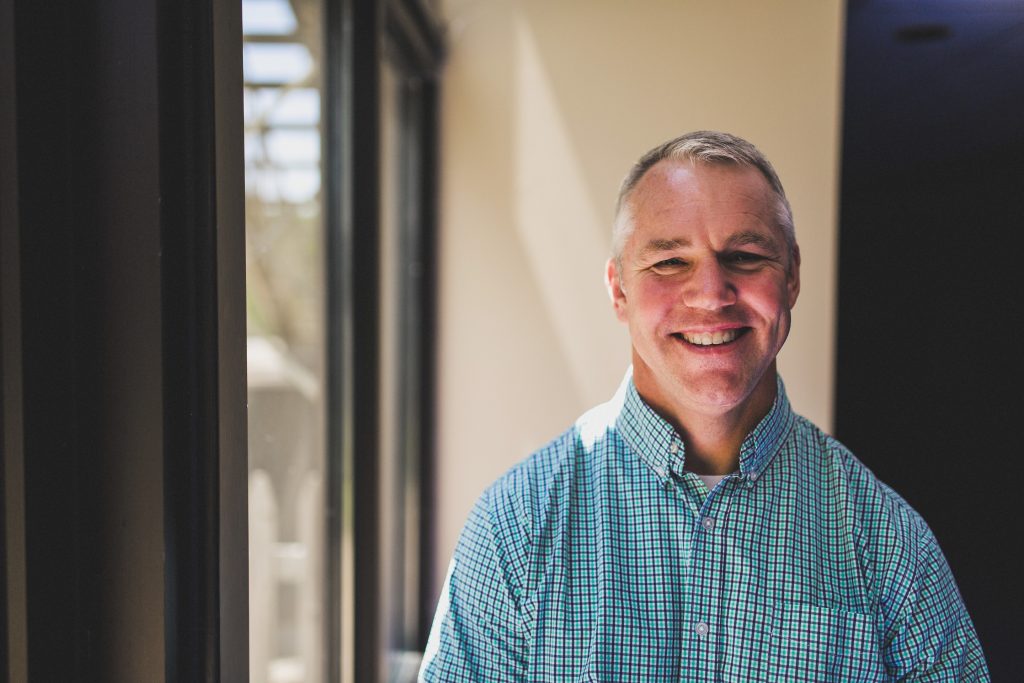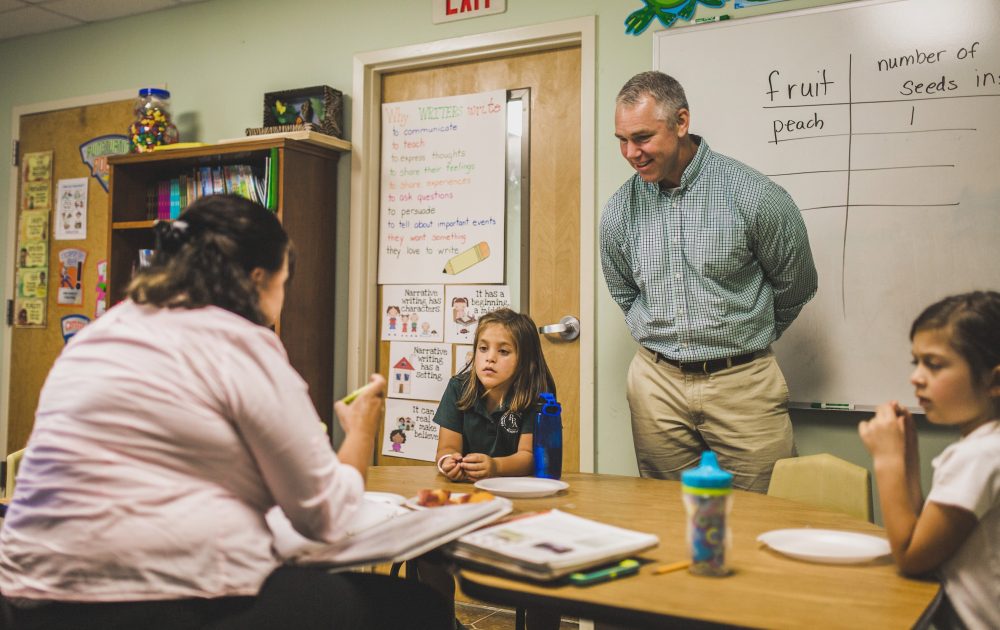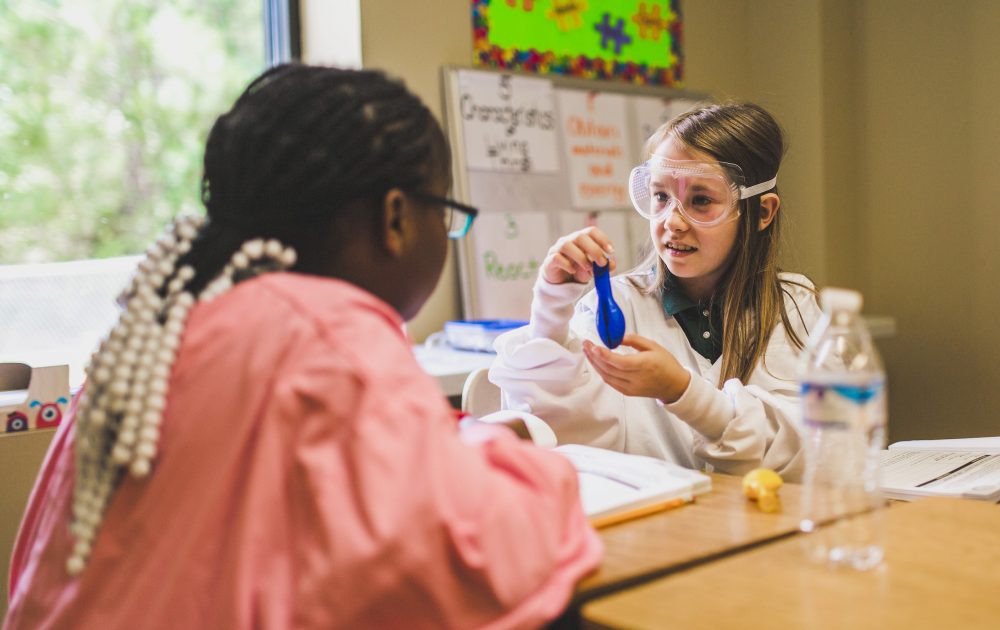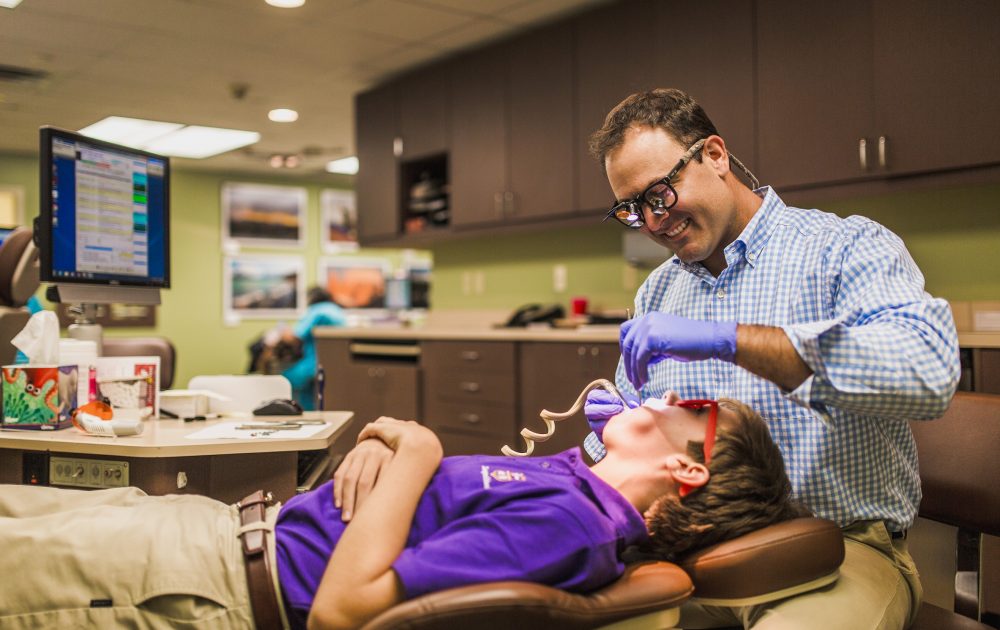
Glen Getchell
PROVIDENCE PREPARATORY ACADEMY is a University-Model School that takes pride in its parent-centered curriculum and Christian virtues. Providence brings both experienced teachers and parents together to educate children and prepare them for life beyond elementary school, all while allowing families to grow closer together.
Glen Getchell takes his responsibilities to heart as the new headmaster of Providence Preparatory Academy, bringing to the table years of experience gained serving as the former headmaster for Unity Christian School before starting his own small business, Getchell Consulting Group. He is a devout family man, working alongside his wife, Laura, to raise their son, Will, 15, and daughter, Ellie, 13, to be future leaders with Christian values. Getchell has lived in Rome for 21 years and is an active member of the community. He has a passion for helping others grow physically and spiritually, serving as a CrossFit and leadership coach in his spare time. The longtime educator wholeheartedly believes the key to educating our youth is found in the home.
V3: What drew you to take on the responsibilities as headmaster of Providence Preparatory Academy?
Glen Getchell: My own children went to school here – after I left Unity – and so I got a taste of the University Model. I started serving on the board while doing some consulting, and it became apparent that it was time for me to step back into a formal role as an administrator of a school. I firmly believe, being that my kids are still in the model, that it was a wonderful time to engage in something that was just beginning, as well as introduce a concept of education to this community and help families. When it’s all said and done, [the University Model] really gives families a lot of control over their children’s schedule and the time they have to spend working on schooling. The desire I had to come here was because I believe that there are a lot of families out there that if they knew how convenient the model was, and how it is something they could actually accomplish at home, they would do it. There are many families who are frustrated with the amount of time their kids spend doing homework or whatever it may be, and this model allows you to decide when that work will be done and take back control over your kids’ study time.
V3: Obviously you are a family man yourself. Tell me some more about your own kids.
Glen Getchell: Both of my children are competitive gymnasts, so they practice five days a week in the evenings – meaning we were really struggling to find a way to go to the gym while maintaining a five-day-a-week school curriculum. So, this model allowed us to use an entire school day to catch up on work from the previous night after a long afternoon at the gym. As a sophomore, Wil is getting four to seven hours of work he needs to do under our authority at home.
V3: For those who may have never heard of the University Model of education, how would you explain it?
Glen Getchell: So, it’s actually a copyrighted model – there are just under 100 University-Model Schools in the country today – but basically the model is preparing kids for the experience they will have in college, starting at a young age. So in elementary school, the kids are in school two days a week and three days at home. The parents are the primary influence in the students’ lives. As the kids get older, the parents still have guidance over their academic program, but they don’t need to be as involved. With a first-grader, you might be sitting with your child working them through a math lesson, but by the time they get into the sixth grade – with the teachers and how they design the lesson plans – it becomes more student oriented and the parent becomes more of a mentor. What these kids are learning is how to properly manage their time. This model is preparing kids to be able to navigate their future college experience.

V3: If someone were to ask you what your personal thoughts were on how we can better educate our youth, what would you tell them? How does this model help?
Glen Getchell: To me, the key to any educational endeavor is the parents. If children are getting supported at home, they can really thrive. There is a reason and a purpose for every model of education – whether it be a public school or a private school. There are different groups of people with different needs. Where this model really thrives is for that family who wants to have much more involvement in what their children are learning, allowing them to be the primarily influence in their child’s life. If you look at a traditional education, a child is going to be under the influence of a teacher for more hours in a day than they would with their parent. This model really does allow that parent to be the primary influencer in their child’s life. In a traditional academic environment, teachers teach to a class of children as opposed to the individual, unique child. However in this model, you make more of class time – you take away all the distractions, yet they still go to school where they learn to navigate and manage with other people in the classroom. They still have to do what the teacher says – they need to know when to sit still or not to sit still, when to raise their hand or not raise their hand – so they are learning all the social aspects of how to be under the authority of someone else in class, yet you can still choose to teach your children exactly how you wish to teach them the other days of the week. Now that I’ve seen this model work, I realize that a student doesn’t have to be in school five days a week to learn. If they have the structure and support, they can learn anywhere.
V3: The University Model is, to say the least, a different approach to educating our youth. What other special approaches to education does Providence Preparatory Academy take?
Glen Getchell: Well, I think the opportunity to gain external learning sources. All schools are going to use technology these days, but when you allow the kids to be off campus to learn, then there are opportunities outside of the direction of the teacher to learn concepts through external resources. The parent can pull in the resources for their child that could be something different than the teacher may have thought of on their own. So, I might be sitting at home with my son as he’s trying to learn a concept in Algebra II, and I can go online with him, and we can figure it out using Khan Academy or other resources. He could be learning something from the top Algebra II teacher in the world from a YouTube video, and he doesn’t have to sit there with his hand up and say he’s confused and hope the teacher can explain it. External resources and (parental) resources are huge when it comes to this model.

V3: Going back to you personally and your responsibilities as headmaster, what do you hope to bring to the academy?
Glen Getchell: I think the biggest thing would be experience. I’ve helped grow a school before and I love the challenge of starting something that’s relatively new. When you walk around [the academy] other than being small right now, it’s a normal school. I want to help people in this community realize that a school like Providence is something that they can utilize. I feel a particular desire to help Mike, Pam and Peggie – all people who helped to start this school – build on their own dream. I’d love to see this be a thriving educational option in this community. I want it to be a very strong and credible school that parents are proud to send their kids to.



